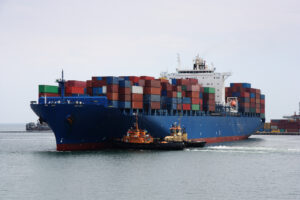
The new IMO and EU emissions requirements will be the headline regulatory issues for 2023.
The IMO’s Carbon Intensity Indicator (CII), which became effective on 1 January this year, has been a subject of criticism about its complexities and many shipowners and CEOs have stressed the need of an urgent revision due to the “unfairness, and the weaknesses of the measure.”
Ian Beveridge, CEO of the Schulte Group, addresses the challenges and measures that lie ahead for shipping, in a very interesting article, and adds his voice to the criticism about the Carbon Intensity Indicator saying that the “required interaction and cooperation between the parties needs to be contractually regulated, and here the industry has hit a roadblock.”
Despite the great efforts of organisations such as Bimco, it has not been possible to develop CII clauses for charter parties that are widely acceptable to charterers and shipowners, he says.
Many industry participants are questioning the coherence and legitimacy of CII, arguing that optimising vessel operations in line with the underlying CII mechanisms can lead to more emissions per ton-mile of cargo transported than would be the case otherwise.
Schulte Group´s CEO considers that the penalties for non-compliance are unclear, leading to many charterers and owners adopting a ‘wait and see’ attitude. Despite this, Bernhard Schulte Shipmanagement (BSM) since early last year has started preparing for CII by setting up a Fleet Performance Centre with 25 expert staff, enhancing vessel efficiency monitoring tools with a proprietary software, installing sensors on a large number of vessels for near real-time monitoring, and providing training to its officers.
The second new initiative is the implementation of the European Union Emissions Trading System (EU ETS) Directive for shipping, which is now being legislated and will come into force on 1 January 2024 with a phased application. This is part of the Fit for 55 package of measures being adopted by the EU to encourage the reduction of emissions. The other noteworthy elements for shipping are the FuelEU Maritime Regulation, the Alternative Fuels Infrastructure Regulation and the Energy Taxation Directive.
As he says, “Collectively, these will cause significant challenges and costs to shipping, also with major consequences for ship managers.”
Shipping Telegraph reported one month ago that the President of the Union of Greek Shipowners Melina Travlos during the union´s annual meeting assembly said “an urgent revision is needed due to the unfairness, and the weaknesses of the measure, which ultimately does injustice to all ships.”
The Union is gathering and will evaluate the data, so as to formulate and promote proposals that can improve the regulation, and mitigate its impact.
However, there is a positive outcome that non-compliance will not be punitive, as she said, and since there is a transitional and an informal period of gaining experience until 2026, the sector is using it as an opportunity.
“We warned in good time, together with other maritime organisations, that compliance with the CII index would be flawed,” Travlos said, announcing that UGS has already set up a special Working Group in the Governing Council, with the aim of demonstrating the weaknesses of the measure, “which ultimately does injustice to all ships”, as she pointed out.


